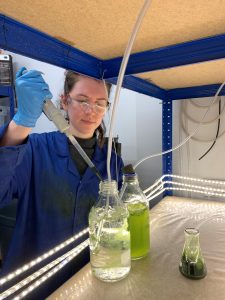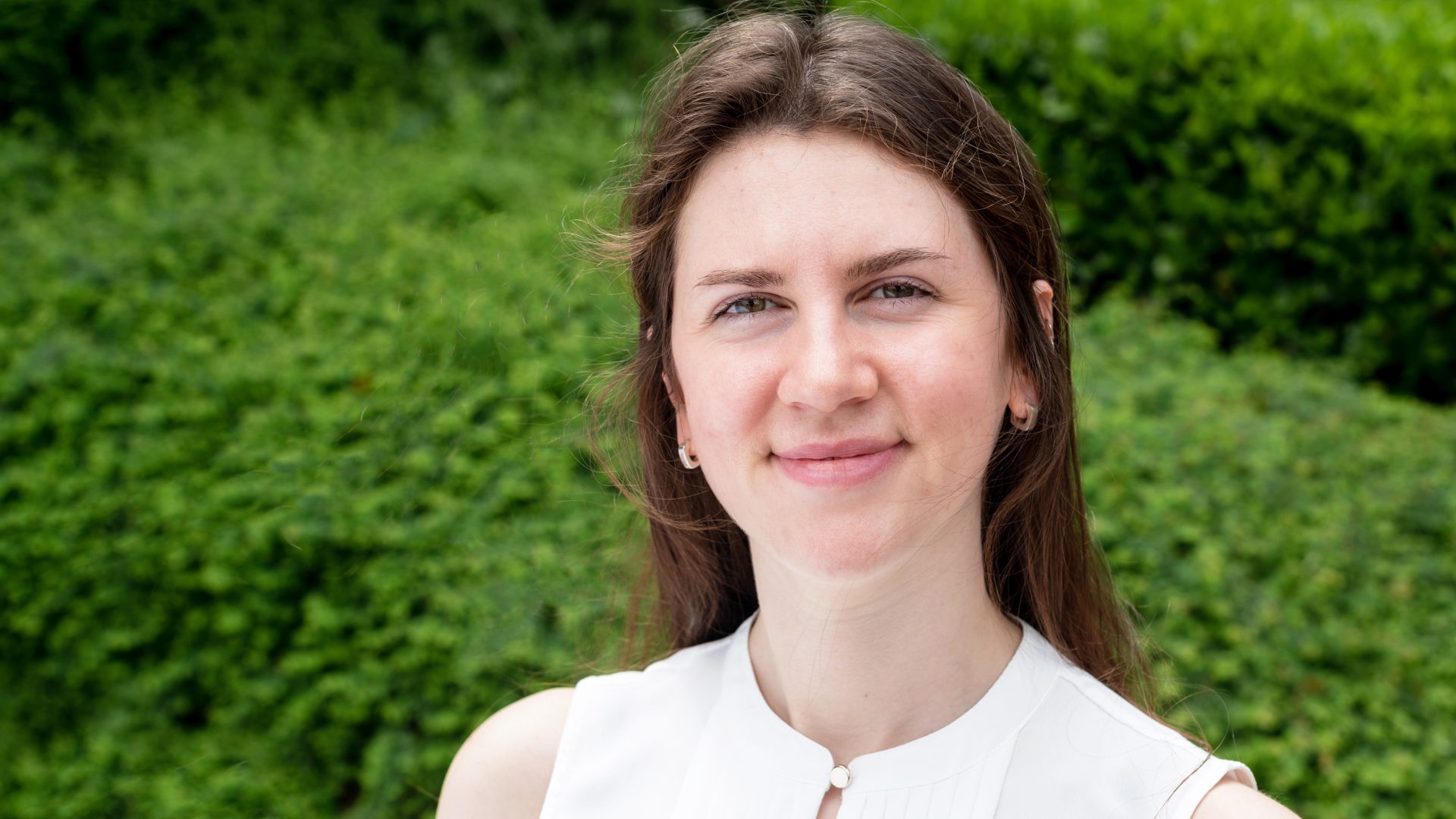I-Phyc is making waves in the water industry thanks to its unique method of harnessing microalgae to remove contaminants from wastewater. This innovation is driven by a lab filled with scientists who, for the most part, happen to be women. Olivia Wilson, I-Phyc’s Assistant Scientist, gives us an insight into what it’s like to work in an unusually female-dominated STEM environment…
I joined I-Phyc in November 2020, during the pandemic, as a lab technician. It was my first “career job” after temping as a waitress for an events company which I did to earn money while completing my Masters in Applied Marine Science at Plymouth University.
I was intrigued by I-Phyc when looking for work because I studied biochemistry as an undergraduate and did my Masters dissertation on microalgae. I think algae are so diverse and have the potential to move a lot of industries forward to a more sustainable future.
My work at I-Phyc has ranged from basic lab duties to more complicated tasks, particularly after I was promoted to Assistant Scientist. I’m now responsible for entire experiments, I consult on other experiments, I write reports for our Chief Science Officer, Thea Ekins-Coward, and I work with external partners too.

Right now, I’m looking at ways to improve the efficiency of our separation technology, removing algae biomass from the effluent, and I’m also working with the team on an experiment looking to optimise the levels of light we need in our bioreactors even further.
In the future, I expect to be exploring what other contaminants our microalgae can address in other industries besides wastewater. Personally, the goal is to gain more experience and become a better scientist so I can continue to progress in the department.
It’s really inspiring working with a team of such talented women, especially Thea who is always thinking outside the box, and I-Phyc Scientist, Francesca Ho, who is incredibly knowledgeable. Their example and the respect they give me empowers me to feel like a strong and capable scientist myself.
Certainly coming into a female-dominated workplace made me feel very comfortable very quickly, which is not what people usually expect when it comes to a woman’s experience in a STEM field. I-Phyc is collaborative and there’s space to talk openly. Ultimately it’s the kind of environment that frees up brain space that might be occupied with office politics, allowing us all to be more creative and productive.
For women who are thinking of getting into science, I would say go for it. If you’re curious about the world and want to understand it, then you’re on the path to becoming a scientist!
To find out more about Olivia’s work at I-Phyc, visit www.i-phyc.com
To connect with Olivia visit https://www.linkedin.com/in/olivia-wilson-aa2a98147/



